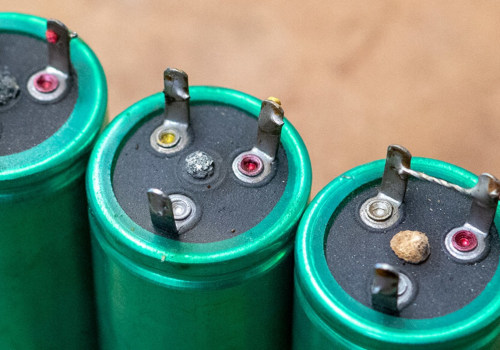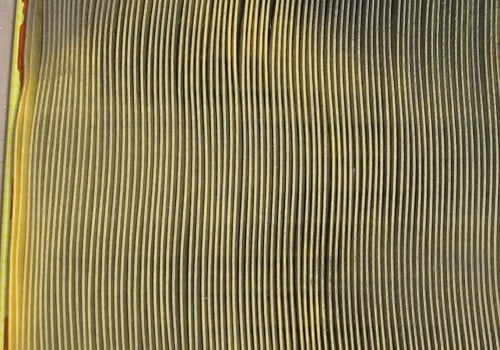At its most basic level, an air filter is used to remove impurities such as dust, pet dander, and even bacteria from the air that flows through the HVAC system. Not only does this improve the air quality inside your home, but it also protects your HVAC system from potential damage. The air cleaner is an important addition to your HVAC system because it prevents dirt from accumulating in the condensate and blocking it. Otherwise, particles can cause water damage throughout the unit. It's also important to keep in mind that you may want filters that do more than just keep dust out of the air conditioner.
If you want to improve the air quality in your space by eliminating pollen, mold, and other harmful contaminants, you should invest in HEPA filters with a MERV rating of 10 or higher. Air filters are a central, but often overlooked, part of a central HVAC system. They don't just filter out bits of pollen and dust that would otherwise circulate around the house, reducing indoor air quality. They also provide a first line of defense against larger objects, such as pieces of loose insulation, that enter the system, where they could cause damage or present a fire hazard. But if you don't change your air filter regularly, it can turn against you.
Clogged air filters are the number one cause of HVAC system failures. Filtration generally occurs when spent air is returned to the HVAC equipment for reconditioning and distribution. Air is forced through the filter and the material removes particles and other contaminants from the air. An HVAC system can work without a filter, but this is not recommended. Without a filter, the system will suck in debris-laden air and return the same dirty air to your indoor environment, contributing to health problems.
In a short time, the system will be flooded with dirt and debris, which can cause a malfunction and consume more energy, shortening its lifespan. A vehicle's cabin air filter helps remove harmful contaminants such as pollen and dust from the air you breathe inside the car. This filter is usually located behind the glove compartment and cleans the air as it moves through the vehicle's HVAC system. If you notice that your car has an unpleasant odor or that airflow has decreased, consider replacing the cabin filter to give the system and yourself a breath of fresh air. As the name suggests, UV filters use short-wave ultraviolet light to kill bacteria and viruses. When air passes through the HVAC unit, UV lamps disinfect it with germicidal radiation. In a short time, the system will be flooded with dirt and debris, which can cause a malfunction and consume more energy, shortening its lifespan. A vehicle's cabin air filter helps remove harmful contaminants such as pollen and dust from the air you breathe inside the car. This filter is usually located behind the glove compartment and cleans the air as it moves through the vehicle's HVAC system. If you notice that your car has an unpleasant odor or that airflow has decreased, consider replacing the cabin filter to give the system and yourself a breath of fresh air. As the name suggests, UV filters use short-wave ultraviolet light to kill bacteria and viruses. When air passes through the HVAC unit, UV lamps disinfect it with germicidal radiation.
UV filters are excellent for killing microorganisms that could be hazardous to health, including mold spores. The pleats of these filters give them an advantage over non-pleated options because they increase the surface area of the filter for better filtration. While certain types of air filters come with reusable and disposable options, washable filters are an eco-friendly way to save money. Filters with more pleats will provide better filtration than those with fewer folds, trapping even the toughest allergens and contaminants such as pet dander and mold spores. Air filters are generally inexpensive and changing the air filter is a simple task that does not require a professional hand. Not all filters are built equal so choosing the right filter depends on what you need to purify the air.
Simply tell him that you want to learn how to change the AC filter and he can show you where the filter is located, how to remove the old filter and insert the new one, and how to get the right filters for your system. In general, high-efficiency filters that are also cost-effective are best for homes but other considerations should include whether there are pets in the house, if mold or mildew is a threat, and how often filters should be changed. No filter is universal so it's important to make sure the filter you buy is the right size to fit your HVAC system. While HVAC systems equipped with clean and efficient filters are not the only answer to this problem, it is important that HVAC filters at least do not contribute to it. Some people need HVAC system filters that keep the air free of allergens and other contaminants while others just need a basic filter to get the job done. For this reason, these filters are not recommended for people who have respiratory problems and need a filter that improves indoor air quality. Media filters are very easy to maintain and ideal for filtering bacteria and other small airborne contaminants.



